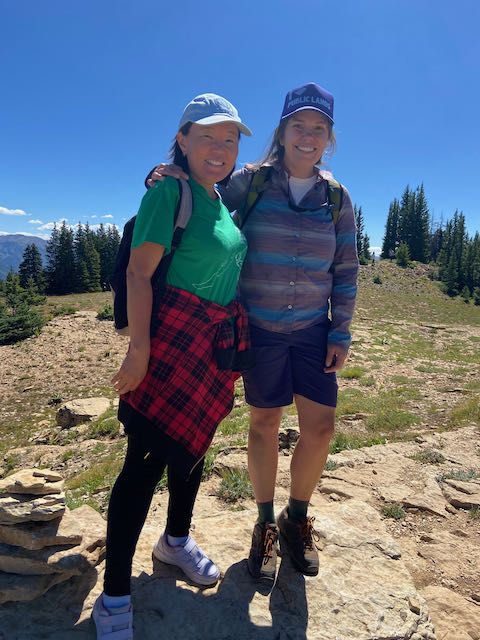The Evolution of the Field of Environmental Education
Colorado Master Environmental Educator Certification Response to:
Krasny, M., Lundholm, C., & Plummer, R. (2010). Resilience in social-ecological systems: the role of learning and education. Environmental education research, 16(5-6), 463-474.
We are living through a paradigm shift on this planet. Doing things as we have always done them is not working and will not work into the future. As described in this editorial, it is time for something different and it may take some significant risk. Looking at environmental management and education from a social-ecological approach is described as being the new paradigm. However, if we look back at the founders of the ecology and conservation movement, this has been proposed before less formally by Leopold and others. It can take generations for a new paradigm to become the norm as we can see here. Effective watershed education is a strong example of social-ecological education that is telling of this new paradigm.
Linking social-ecological education and management to system resilience is fascinating. There is a fair amount of hope for any educator, community member, or land manager to know that with social-ecological education, our world community can possibly withstand the insurmountable changes in our landscape through reliance. In a world of constant exponential change, the ability to recover from or adjust easily to change, or to be resilient is imperative. In this world we are living in, the most effective way to steward the land is to provide meaningful opportunities for children to learn, enhance their ability to critically think, promote social skills to work with all people in the community, multi-loop learning, reflexivity, and incorporating feedback and/or information from the social and ecological components of a system. Imagine a world of people who can perform with these new standards; the ecosystem and land communities will not only be resilient, but may begin to thrive with this new found sense of relationship and stewardship.
The authors discuss the exploration of transdisciplinary scholarship that works across disciplinary boundaries and incorporates epistemological pluralism. In effective watershed education, this must occur. Watershed education is the epitome of transdisciplinary education. Watershed education crosses the boundaries of governance, ecology, economics, community sustainability, geography, history, cultural sociology, and politics. Yet, the authors ask some valid and challenging questions for educators, one being: how do we create resilient learners who can foster resilient social-ecological system?
Resiliency not only focuses on the ability to adapt or recover, but it also includes the capacity to learn and innovate. Throughout the constant changes, we can use change to precipitate reflection, learning, and moving to a more desirable state according to the authors. As environmental educators we have the ability to create opportunities for learners to become aware of their world around them in their particular place through reflective activities. Allowing learners to explore, record and reflect on their findings leads to creative, imaginative, innovative thinking. This method of learning expands beyond the individual learner to the larger community to which they belong.
Watershed education strives to create awareness for the interdependent parts of an entire geographic region beyond political boundaries. Creating this awareness through learning opportunities that include the process of change in our world view - our thoughts, feelings and behaviors.. And through this change in perspective, learners are empowered to change their relationship with their watershed community leading to a more resilient social-ecological community.
This does not come without tension. The authors discuss the differences between resilience as resisting change, as when systems or learners hang on to maladaptive notions and practices, and resilience as an opportunity for growth following disturbances or setbacks. Where does evolution and natural selection fit in this discussion? When does resilience mean to bounce back to the original state of being that was comfortable or does it only mean to adapt in a new way to a new norm? Looking at watershed ecology and the natural systems in the West, water uses argue that how water is managed today is the new norm and all systems need to adapt to it. However, river ecologists argue that the new norm is not to be adapted to, rather resiliency of the system is to revert to the way river ecosystems used to operate before being de-watered (or in Colorado Springs, over-watered from diversions!) by water users. Resiliency must thrive amongst the tension.
Watershed education must included opportunities for learners to explore the value of reactive responses to changes versus proactive responses within the context of governance. The authors suggest that there may be a value to the intentional process of adaptation and transformation. When looking through the lens of a watershed focus when studying social-ecological systems, learners must be exposed to the possibility of mechanisms that are currently in place or could be put in place to create stronger resilient systems.
Finally, the authors discuss paying attention to feedbacks. Teaching learners to be aware and to notice feedbacks objectively is critical to fostering system level resilience. With quality environmental education, teaching skill of awareness and noticing is essential to learners. Within the context of watershed education, understanding feedback is crucial. Observing feedbacks at a systems level both socially and ecologically will lead to a sustainable and resilient social-ecological community.
There is significant hope this is article. For environmental educators to understand and see the research that supports that there is potential to link education and learning to management that results resilient social-ecological systems is encouraging in this world of unknown rapidly changing landscape. Environmental education in the future must not only change the learner’s understanding, feelings, and appreciations, it must contribute to environmental governance practice and policy. And with the advancements and professional strides environmental education has come, this is beginning to happen and will continue to be the result of environmental education efforts.


Comments
Post a Comment